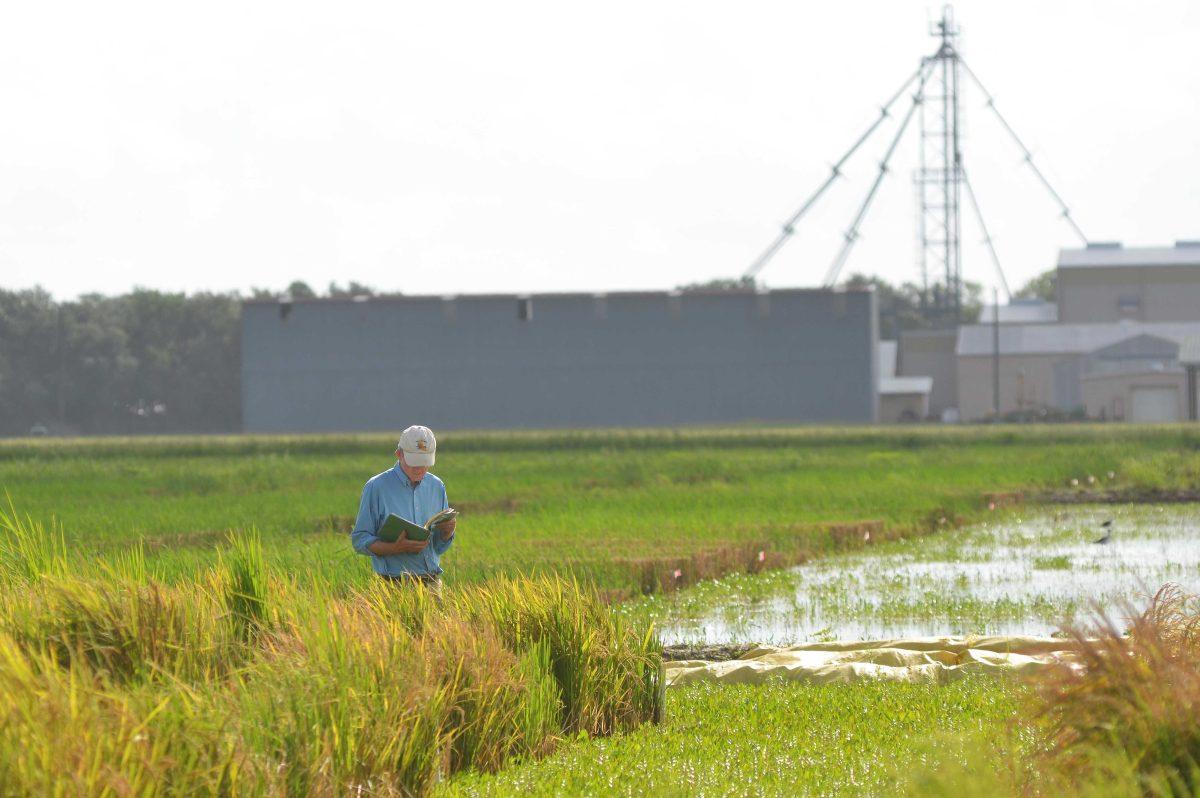Louisiana farmers affected by flooding are taking stock of their losses — a collective blow initially estimated at $110 million.
The LSU AgCenter says flooding that devastated parts of Louisiana will have a significant impact on the agriculture industry as a whole, with soybean and rice crops being the hardest hit.
“You take a hit like this, and it really affects the bottom line,” said Christian Richard, who plants soybeans and rice in northern Vermillion Parish, noting that the current low price of rice has put farmers in a tough position.
Richard lost two-thirds of his soybean crop, and at least 150 acres of rice. But on top of those initial losses there will be impact on the ratoon crop, which is harvested in early November. Some of his fields are still underwater, he said.
Dustan Harrell, with the LSU AgCenter’s Rice Research Station, says damage begins once grains of a rice have been under water 24 hours.
So far, persistent rains have not been helpful.
“Rice that got knocked down because of rain is starting to sprout, not just because of that one event but because of subsequent rains,” Richard said. “We’re three weeks removed, and it’s still raining.”
Weather conditions in the coming weeks will be an important factor in whether or not the impact is exacerbated.
“It’s going to be devastating,” said Ron Levy, a soybean specialist with the AgCenter. “A lot of the farmers may not be able to survive economically the losses they incurred due to these storms.”
Levy said in many cases soybean losses were 100 percent. And even for those who may be able to salvage some of their crop, the soil is too saturated to hold the weight of a combine harvester.
It won’t be until the first week of September, assuming it stays dry, that farmers will be able to harvest the plants that only suffered minimal damage, he said.
Other crops such as sugar cane, corn, and fruits and vegetables have also been affected.
While the flooding in March, most in northern Louisiana, impacted farmers, the event was early enough in the calendar year to allow replanting, Harrell said. There is no chance of that in the most recent floods of South-central Louisiana.
The AgCenter will release a report on the flood damage and extent of losses in coming weeks. For now, all they can do is speculate, Harrell said.
Louisiana farmers take collective $110 million blow from flooding
September 1, 2016
Jim Oard, LSU AgCenter hybrid rice breeder, looks over his notes while inspecting hybrid plots at the Rice Research Station. Photo by Bruce Schultz
More to Discover







